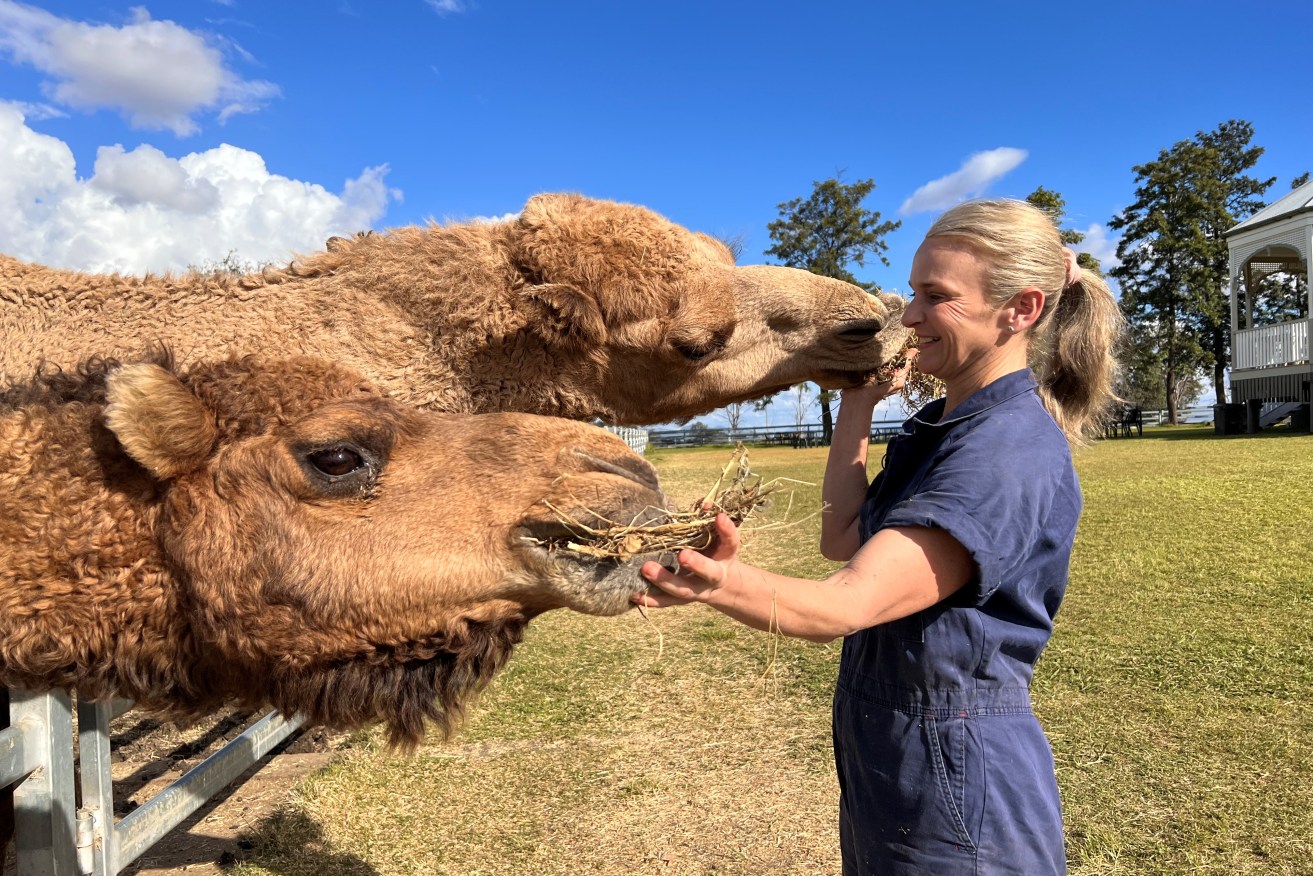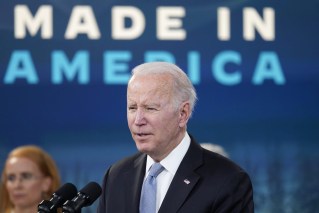Going rogue: Why this vet has big plans for feral camels
For Queensland veterinarian Margie Bale, every day at work is hump day.


One hump or two? Margie Bale tends one of her dairy camels at Summer Land Camels, Harrisville. (Photo: Supplied).
The University of Queensland trained vet professes to be Australia’s only camelid specialist, the grouping of animals that includes the one-hump variety, called the dromedary, and the double-humped types, called the Bactrian, as well as alpacas and llamas.
Australia has the largest feral population of dromedary camels in the world, estimated as high as 3 million and classified as a pest for the damage caused to native fauna and flora.
But Bale has plans to turn these rogues from pest to premium product, with ambitions to turn them into desirable livestock for their milk and meat productive capacity.
“When you think about cattle, before we had good nutrition and pastoral techniques and processing standards, they no doubt were pretty tough and stringy,” she said.
“There is a very large market for camel meat overseas, and I see no reason, with some research and will to feed them and look after them properly, we couldn’t be turning out tasty camel steaks like Wagyu.”
Bale is already turning her hand to Queensland’s burgeoning camel dairy industry, working with Paul Martin’s 450 head herd at Harrisville, near Boonah.
When she’s not tending to the needs of the milkers at Summer Land Camels, or consulting to other operations around Australia, Bale is a guest lecturer at UQ’s Gatton campus, regarded as a national hub for agricultural teaching, research and innovation.
As well as improving the health of camels, Bale is hopeful more graduating vets will follow her passion in a bid to release what she calls “untapped potential”.
“I love camels, their physiology and their temperaments, but if we don’t put a value on them, we won’t consider them to be of any worth; we’ll just continue to treat them as a pest to be eradicated,” she said.
“Giving them value by growing an industry around them, grows research funding and resources and gives them a better life.”
Bale will be among alumni, students and academics celebrating the 125th anniversary of the Gatton campus, established as Queensland Agricultural College in 1897, from this weekend, with the party set to last 12 months.
“It’s wonderful to be part of a university that has a global commitment to quality and all of the positive messages in a globally ranked and recognised university,” Professor Nigel Perkins, from UQ’s School of Veterinary Science, said.
“It’s fascinating to be part of the growth of Gatton campus, to build connections locally, and to continue to be part of a university that is strongly committed to building Gatton campus as a flagship, as a global leader in ag science, animal science, horticulture, veterinary science, that is just stimulating.”









